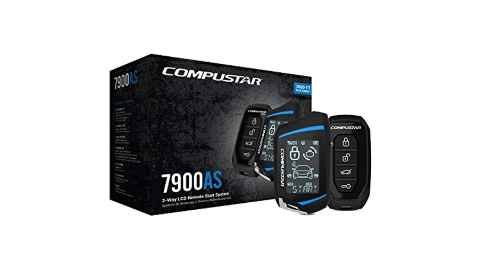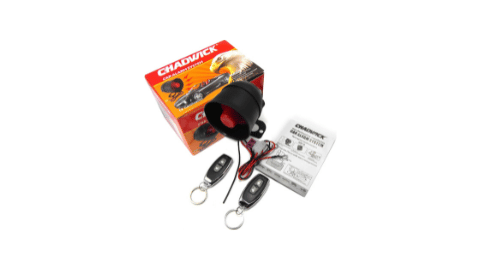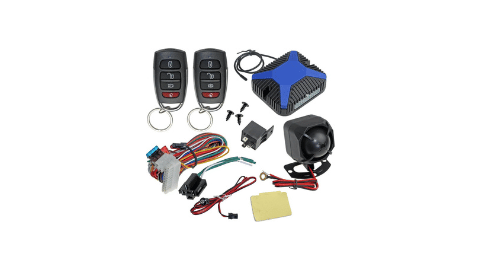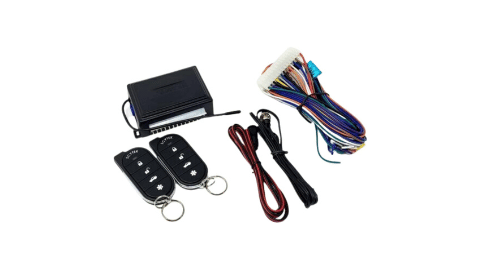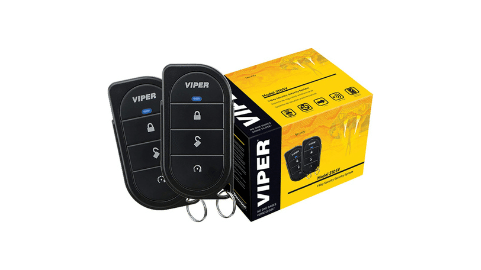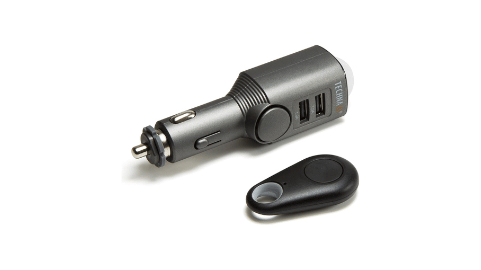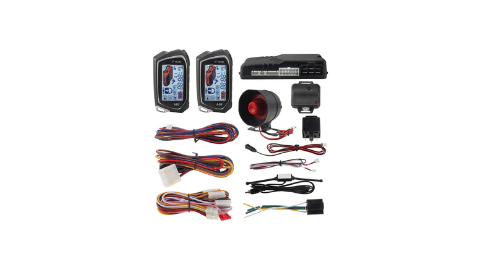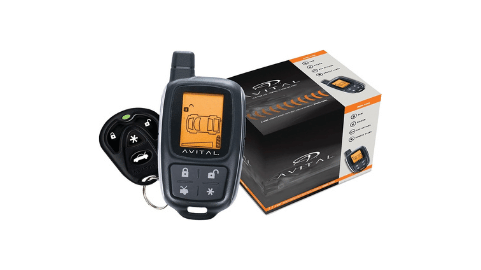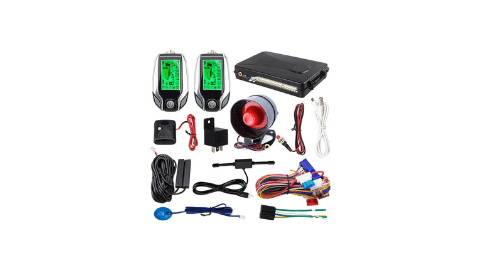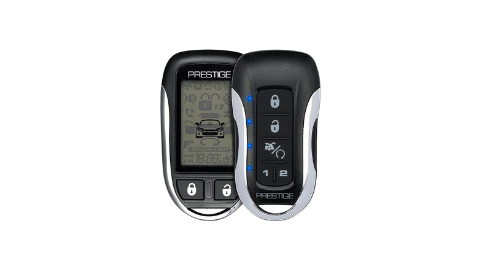Looking for top-notch security to protect your vehicle? In this guide, we’ve rounded up the best car alarms designed to keep your car safe from theft and break-ins. These advanced systems offer features such as motion sensors, keyless entry, and smartphone connectivity, providing peace of mind whether you’re at home or on the go. From budget-friendly options to premium setups, we’ve covered the top-rated alarms for every type of vehicle and budget. Check the links to explore the best car alarms on the market and find the perfect one to safeguard your ride. Stay protected and secure with cutting-edge car security solutions!
Best Car Alarms Buying Guide
In today’s world, where vehicle theft remains a persistent concern, investing in a high-quality car alarm system is crucial for protecting your valuable asset. Car alarms serve as a powerful deterrent against potential thieves and provide peace of mind to vehicle owners. These sophisticated security devices have evolved significantly over the years, offering a wide range of features that go beyond simple noise-making capabilities. Modern car alarms integrate advanced technologies to provide comprehensive protection for your vehicle, often including features such as GPS tracking, remote start, and smartphone integration. By understanding the various aspects of car alarm systems and carefully considering your specific needs, you can make an informed decision that ensures the best possible security for your vehicle.
Key Features to Consider
Sensors and Detection Methods
The heart of any car alarm system lies in its sensors and detection methods. High-quality car alarms employ a variety of sensors to detect unauthorized entry or tampering. Door sensors are fundamental, triggering the alarm when a door is opened without proper authorization. Shock sensors detect impacts or vibrations, which can alert you to attempted break-ins or vandalism. Tilt sensors are particularly useful for detecting when a vehicle is being towed or lifted, a common method used by sophisticated thieves. Some advanced systems also include glass break sensors, which can detect the specific frequency of breaking glass, and proximity sensors that create a protective field around your vehicle. When evaluating car alarms, consider the types and sensitivity of sensors offered, as well as the ability to adjust their sensitivity to prevent false alarms in high-traffic areas or during stormy weather.
Alarm Notifications and Alerts
The effectiveness of a car alarm system largely depends on its ability to alert you and deter thieves. Traditional systems rely on loud sirens to draw attention and scare off potential criminals. While this remains an important feature, modern car alarms offer more sophisticated notification methods. Look for systems that provide multi-channel alerts, such as SMS text messages, email notifications, or push notifications through a dedicated smartphone app. These remote notifications are invaluable when you’re not within earshot of your vehicle, allowing you to take immediate action if your car is being tampered with. Some advanced systems even offer real-time tracking and video feeds, enabling you to assess the situation remotely and provide crucial information to law enforcement if necessary.
Remote Control and Smartphone Integration
The convenience and functionality offered by remote control features and smartphone integration have become increasingly important in car alarm systems. Look for alarms that provide long-range remote controls, allowing you to arm and disarm your system from a significant distance. Even more advanced are systems that offer full smartphone integration, turning your phone into a powerful control center for your vehicle’s security. These apps often allow you to arm and disarm the alarm, check the status of your vehicle, receive alerts, and even control additional features like remote start or climate control. When considering smartphone-integrated systems, pay attention to the app’s user interface, reliability, and compatibility with both Android and iOS devices to ensure a seamless user experience.
Additional Security Features
Modern car alarm systems often include a range of additional security features that enhance overall protection. Immobilizers are a crucial component, preventing the engine from starting without proper authorization, even if a thief manages to bypass the alarm. GPS tracking capabilities are invaluable for locating your vehicle in case of theft or if you simply forget where you parked. Some systems offer geofencing, allowing you to set virtual boundaries and receive alerts if your vehicle moves outside these predefined areas. Two-way communication between the alarm and key fob or smartphone app provides real-time feedback on your vehicle’s status. Consider systems that offer a combination of these advanced features to create a comprehensive security solution tailored to your needs.
Installation and Compatibility
Professional vs. DIY Installation
When it comes to installing a car alarm system, you have two primary options: professional installation or do-it-yourself (DIY). Professional installation ensures that the system is correctly integrated with your vehicle’s existing electrical system and can often provide a cleaner, more seamless look. Professionals have the expertise to handle complex wiring and can often complete the installation more quickly than a DIY approach. Additionally, some manufacturers may require professional installation to maintain warranty coverage. On the other hand, DIY installation can be more cost-effective and allows for greater customization. If you’re comfortable with automotive electronics and have experience with similar projects, a DIY approach might be suitable. However, it’s crucial to carefully consider your skills and the complexity of the system before deciding on self-installation, as improper installation can lead to malfunctions or even damage to your vehicle’s electrical system.
Vehicle Compatibility and Integration
Not all car alarm systems are universally compatible with every vehicle make and model. When selecting an alarm system, it’s essential to ensure compatibility with your specific vehicle. Some systems are designed to work seamlessly with certain manufacturers or model years, while others offer more universal compatibility. Consider factors such as your vehicle’s existing security features, keyless entry systems, and onboard computer systems. Some advanced alarm systems can integrate with your car’s CAN-bus (Controller Area Network) system, allowing for more sophisticated features and reducing the need for additional wiring. Research thoroughly or consult with a professional to determine which systems are best suited for your particular vehicle to ensure optimal performance and avoid potential conflicts with existing electronics.
Long-term Considerations
Reliability and Durability
When investing in a car alarm system, it’s crucial to consider its long-term reliability and durability. Look for systems from reputable manufacturers with a track record of producing high-quality security devices. Read user reviews and professional evaluations to gauge the system’s performance over time. Pay attention to the quality of components used, such as weather-resistant materials for exterior sensors and robust construction for control modules. A reliable car alarm should function consistently in various environmental conditions, from extreme heat to cold and wet weather. Consider the warranty offered by the manufacturer, as this can be an indicator of their confidence in the product’s durability. A longer warranty period often suggests a more reliable and durable system.
Upgradability and Future-proofing
The world of automotive security is constantly evolving, with new technologies and features emerging regularly. When choosing a car alarm system, consider its potential for upgrades and future-proofing. Look for systems that offer firmware updates, which can add new features or improve performance over time. Some manufacturers provide modular systems that allow you to add new components or sensors as they become available, extending the lifespan and capabilities of your security system. Additionally, consider the system’s compatibility with emerging technologies such as advanced driver assistance systems (ADAS) and connected car platforms. A future-proof car alarm should be able to integrate with these evolving automotive technologies, ensuring that your investment remains relevant and effective for years to come.
Conclusion
Selecting the right car alarm system is a crucial decision that can significantly impact the security and peace of mind you experience as a vehicle owner. By carefully considering factors such as sensor types, notification methods, smartphone integration, and additional security features, you can find a system that provides comprehensive protection tailored to your specific needs. Remember to weigh the pros and cons of professional versus DIY installation, and ensure compatibility with your vehicle to avoid potential issues. Prioritize reliability and durability to ensure your investment stands the test of time, and consider the system’s upgradability to future-proof your vehicle’s security. While the process of choosing a car alarm may seem daunting, taking the time to research and select the right system will ultimately result in enhanced protection for your vehicle and greater peace of mind for you as an owner. With the right car alarm in place, you can drive with confidence, knowing that your vehicle is well-protected against potential threats.


